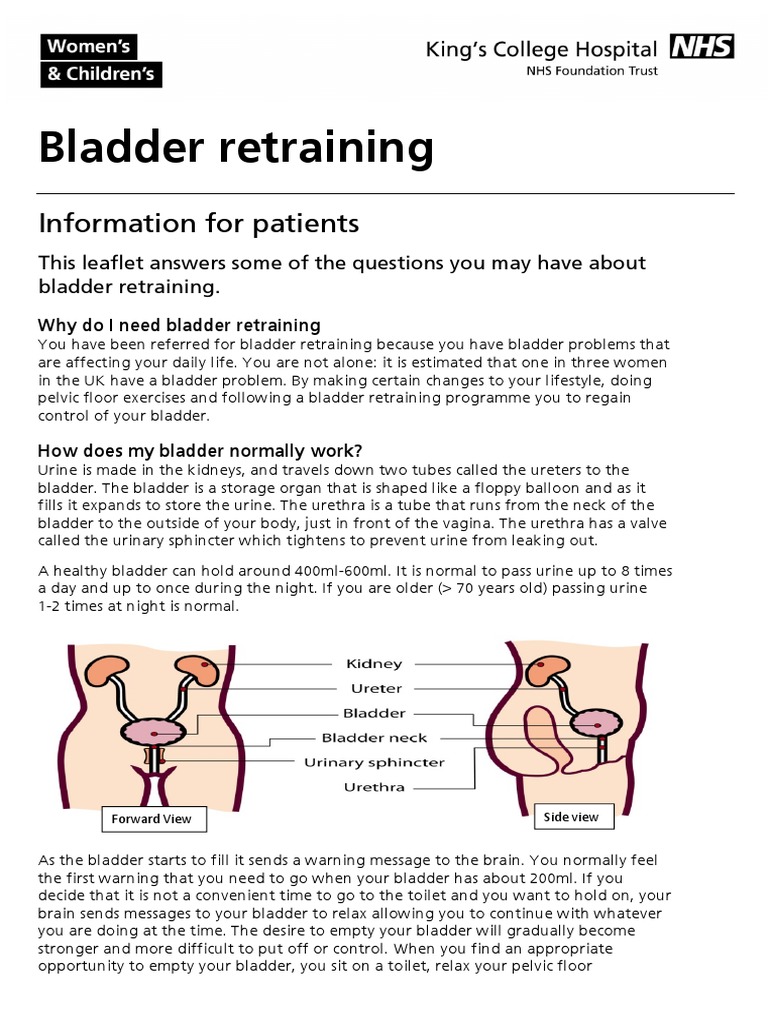
September 7, 2024
Urinary Incontinence Urinary System & Digestive Tract: Types, Creates, Therapies
Urinary System Incontinence Treatment Mumbai Pee Leakage Therapy Urinary incontinence (UI) is the loss of bladder control, or being not able to control peeing. It can vary from being a minor issue to something that greatly impacts your every day life. Gradually, signs and symptoms from an over active bladder can get worse and come to be a lot more visible. If your urinary incontinence began after a current medical procedure, injury or the start of a brand-new medicine, call your doctor. You could really feel humiliated to talk about your urinary system incontinence, yet it's worth it. Your medical professional can help you figure out what's triggering your issue. For females, physicians might prescribe a tool called a pessary that is placed right into the vaginal canal. With this type, you have an urgent need to visit the washroom and may not get there in time. Without therapy and various other modifications, desire continence can worsen.Treating Urinary Incontinence
Does consuming alcohol a lot more water assistance bladder leakage?
, the production of an extra focused urine may be bothersome to the bladder. In these people, consuming alcohol more water can help urinary incontinence due to reduce in the regularity of voiding and the amount of leak. Urinary incontinence almost never ever vanishes by itself.
- In many cases, therapies for cancer cells can also make it harder for you to control your bladder.
- Prostate cancer cells triggers similar signs to BPH, and sadly treatment includes surgery, chemotherapy, or radiotherapy.
- For many individuals with urinary system incontinence, the complying with self-help suggestions and way of life modifications suffice to eliminate signs and symptoms.
- Pelvic floor workouts can be reliable at reducing leaks.
- By stressing education and preventive measures, healthcare experts can considerably enhance client recognition and self-management of urinary system incontinence.
- Electrodes are momentarily put into your anus or vagina to stimulate and enhance pelvic flooring muscles.
What Creates Urinary System Incontinence?
The clinical definition of urinary system incontinence is the unintentional loss of pee. This is mainly the result of the inability to detain the urine as a result of the loss of control over the sphincters. The muscle of the wall surface of your bladder agreements unwillingly, which results in the necessity to pee. Among the significant sources of this trouble is an overactive bladder. An urgent, uncontrollable need to pee is the leading sign of urge incontinence.Women
This might come to be much more difficult towards the end of pregnancy when the baby is at its largest. Take a breath typically and unwind while you're doing pelvic flooring workouts. Objective to gradually boost the hold to 10 seconds with each capture. Some, but not Fecal incontinence all, urologists execute SUI surgical procedures, so be sure to do your homework and ask concerns during your visit. Urologists give look after both men and women and focus on the urinary system system and urogenital system-- the kidneys, bladder and urethra. You might need to continue doing Kegel workouts for the rest of your life. Even if your symptoms boost, urinary incontinence can return if you stop doing the exercises. Some women have bladder control troubles after they stop having periods.Social Links